
The Free Press

For the longest time, when you thought about the most powerful person in the world, the person who probably came to mind was the president of the United States, the leader of the free world. But in 2023, the person who comes to mind for most people isn’t an elected official. Instead, many of us picture a 52-year-old civilian who, through his own determination, ambition, talent, and sheer will, has amassed an enormous amount of wealth—more than any other person on this planet—and an enormous amount of influence over many of the most important industries in the world.
Elon Musk’s biography is difficult to summarize, but that’s exactly what my guest today on Honestly, Walter Isaacson, has spent the past two and a half years doing in a new book simply titled Elon Musk.
Isaacson is an award-winning biographer of luminaries including Henry Kissinger, Benjamin Franklin, Albert Einstein, Leonardo da Vinci, Steve Jobs, and Jennifer Doudna. But this recent undertaking has no doubt been his most complicated one to date. That’s because the man he wrote about has a story that’s still very much unfolding. In fact, when Isaacson started writing the book, Musk hadn’t even purchased Twitter.
One of the questions that underlies the entire biography is this: What does it mean for one man to have so much power?
We’ve all had a glimpse into what it means for the world over this past month.
Take, for example, when Israel briefly cut off Gaza’s internet as part of their war strategy to eliminate Hamas. Musk announced he was going to provide it himself through his company, Starlink. After widespread criticism, he posted an exploding head emoji on Twitter. Then, when a commenter suggested he must have felt pressure to provide the coverage, Elon simply responded, “yeah,” with a frowny face. Musk apparently then met with the head of Shin Bet, Israel’s internal security service, and announced that he would “double check with Israeli and U.S. security officials before enabling any connections.” The point, as my friend and writer Jacob Siegel put it, is that “non-state kingmakers are redefining the scope of warfare through direct intervention.”
Musk’s Twitter, now X, has also had a profound impact on our understanding of this war and its beginnings. It’s hard to imagine, under Twitter’s previous regime, that we would have had access to the raw footage from Hamas’s October 7 massacre. Elon’s version of Twitter, which is less censorious than the previous guard, has allowed millions of people across the globe to see—with their own eyes—exactly what Hamas did. And yet, with those loosened rules, the site is also awash in bigotry and disinformation. To take just one example, scores of people, including elected officials like Congresswoman Ilhan Omar, are posting horrifying photos and videos of crying children from Gaza, when in reality they are photos and videos from Syria in 2013.
Should one person wield such enormous influence over everything from space travel to social media to warfare? That’s the theme of today’s conversation with Walter Isaacson.
Click here to listen or read an edited excerpt below:
On Elon as a great risk-taker:
Bari Weiss: I tore through your new 670-page biography—which is titled simply Elon Musk—and I found myself struck by the theme of power, and specifically whether Elon Musk, who is the richest man in the world, has too much of it. Too much power in private enterprise, too much power in foreign policy, too much power in his family life and his romantic life, and arguably maybe too much power over journalists like you and me. So that’s where I want to start.
Walter Isaacson: There’s a simple answer, which is yes, he does have too much power, but then if you want to drill down deeper, how come? One reason is this all-in hardcore intensity that causes him to make engineering things work. When I first started this book, almost every other car company had gotten out of the electric vehicle market. Elon went to the edge of bankruptcy and not only designed good electric vehicles, but he designed factories in America that can make them at scale. Just this year he’s made a million electric vehicles, more than all the other car companies in America combined, fourfold. Likewise, NASA quit trying to send people to the moon 50 years ago or so. It gave up on sending astronauts to the space station when it grounded the space shuttle a dozen or so years ago. Musk, this year, will send 1,600 tons of payloads and satellites into orbit, which is four times as much as every other company combined. This gives you enormous power when you’re the only person who can launch U.S. military spy satellites into high Earth orbit. Boeing can’t do it. NASA can’t do it. But besides just saying yes, he has too much power, the book shows: How did he accrue it?
BW: So, it’s not necessarily a knock on Musk for his will to power. It’s, in a way, a knock on so many of the systems, including the American federal government, that have failed, and he has stepped into the breach.
WI: One hundred percent. We used to be a nation of great risk-takers. That’s how you get rockets into orbit or make an electric vehicle company. Wherever you came from, it’s likely your family took risks. But now we have become a country more filled with referees than risk-takers, more filled with regulators and lawyers and guardrail builders than innovators. I think that’s made us sclerotic as a country. We don’t have the factories that we used to have to build things. We don’t shoot off the rockets the way we used to. And Musk is not only a risk-taker, he’s risk addicted. It comes from a childhood that was a very brutal childhood. He has associated risk with pleasure in some ways. Peter Thiel—who helped found PayPal with him—said that most entrepreneurs take risks, but Elon runs toward them. He embraces them.
On Elon’s volatile upbringing:
BW: Another theme to Elon Musk’s story is the story of powerlessness and pain. Here’s what you write: “As a kid growing up in South Africa, Elon Musk knew pain and he learned how to survive it.” He was bullied quite a bit growing up. One time, a group of boys cornered him and beat him so badly he was hospitalized for a week, an experience that you write affected him for the rest of his life. While those regular physical beatings were surely traumatic, you write that “Those scars were minor compared to the emotional ones inflicted by his father.” Tell us a bit about those scars and his father, Errol Musk.
WI: After Elon was beaten in the playground of his high school, he had to go to the hospital for almost a week. When he comes home, his father makes him stand erect for more than an hour in front of him while his father tells him how worthless he is, how stupid he is, and takes the side of the kid who beat him up. That instills a lot of demons, and sometimes you can turn demons into drives, as Musk has done. But sometimes demons still remain demons. And as Grimes, the mother of three of his children, said, he goes into demon mode and he’s like his father. He will suddenly shift into a dark mode and be kind of quiet. He won’t physically be abusive, he won’t even yell, but he will be cold and callous and cruel at times. It’s almost like Jekyll and Hyde. When he gets into that mode, it’s hard to break him out of it. When he comes out of it, he hardly remembers what he did. I think those are the type of demons that were instilled in his childhood and makes him associate love with pain. He’s a drama addict, as his brother Kimbal said. He had no friends, he was scrawny with Asperger’s, as he says, and would go to the corner of the bookstore and sit and read the superhero comic books. He admired how they were all trying to save the world. They were wearing their underpants on the outside so they looked ridiculous, but at least they were trying to save the world. He comes out of this experience with a love for drama, a love for risk-taking, but with this idea of “I’m a scrawny kid but I’m going to become the epic superhero of my own comic book.”
BW: In a way, it’s sort of the oldest trope in the world: someone trying to outrun their daddy issues, trying to outrun the long shadow of the man that tortured them, but ending up sort of echoing it, replicating it, becoming it themselves. Do you think he’s aware of that?
WI: Maye Musk, Elon’s mother, who divorced Errol early on, said to me at the very beginning: the danger for Elon is he becomes his father. It’s Luke Skywalker, the epic hero, discovering who Darth Vader really is, and fighting the dark side of the force. There are times when Musk is self-aware and almost humorous about it, knowing that he’s Captain Underpants playing an epic hero, and he can joke about himself. But there were times when he would go into demon mode and he wouldn’t be self-aware. He’d just be cold and angry, and you just had to sit back, be quiet, and wait it out.
BW: The obvious criticism, and several people have brought this up in reaction to your starting with the abuse that Elon suffered in childhood, is that it justifies his cruelty and bad behavior, or it justifies his demon mode. And I wanted to let you respond to those criticisms.
WI: It’s very interesting because when you explain and try to understand the forces that make a person, it can seem like you’re edging into justifying or excusing. You know, a lot of people with really bad childhoods turn out to be perfectly nice. And there are a lot of people who are total jerks who had really good childhoods. So I’m not trying to justify what Musk does, but what a biographer tries to do is give you the narrative and help you understand what happened. And that sometimes becomes a cautionary tale. But I think each reader should make a judgment and each reader will. I give you the true facts of that childhood. I’ll give you his father’s side as well, and his brother’s side and everybody who knew him then. And if you think that justifies his really bad behavior, that’s all you, that’s not on me.
On Elon’s inspiration:
BW: I’m going to attempt to do an extraordinarily foolish thing and summarize all of Elon Musk’s career in the span of a single question. At age 24, Elon Musk drops out of his Stanford PhD program and starts his first company with his brother called Zip2, a digitized version of the Yellow Pages directory with maps. Four years later, Zip2 is acquired for $307 million. Elon, age 28, gets $22 million out of that deal. And from there it’s really just boom, boom, boom, boom, boom. He founds PayPal, which goes public in 2002. Musk makes something like $250 million, much of which he uses to start SpaceX in that very same year, a company that manufactures and launches rockets that wants to take us to Mars. In 2004, he becomes Tesla’s largest shareholder, and later its CEO. About a decade later, he developed Starlink, which has since sent thousands of satellites into low Earth orbit, providing coverage to over 60 countries. In 2016, he co-founded Neuralink, which is developing implantable brain computer chips in order to integrate the human brain with AI, and about to start a trial run with people with ALS. In 2017, he founded the Boring Company, a company trying to create low-cost freight tunnels. If Musk’s origin story is being the abused kid drawn into sci-fi and comic books wanting to save the world, help us understand what binds all of these seemingly disparate projects together.
WI: There were three great missions he came away with from that dark corner of the bookstore when he was a kid with no friends. One was that humans had to be space explorers. We had to go back so that we could become multiplanetary. We could go to Mars. Now, these are not the things you and I worry about as 17-year-olds, but he wants to make life multiplanetary. Number two, he wants sustainable energy. He realizes that the planet is not going to survive with a drill-and-burn type energy system, so he wants to create electric vehicles, solar roofs, power walls, and things that will get us that way. The third great mission that he set for himself is that we have to make sure our artificial intelligence is beneficial to humanity rather than harmful to humanity. I used to think that those three great missions that he would talk about were the type of pontifications a goofball does for podcasts or pep rallies of his team. But over and over again, even in quiet moments, it would almost be an incantation, which is if we don’t get moving, we’ll never get humanity to Mars. Or if we leave Microsoft and Google to do AI, the robots are going to destroy us. I came to believe that at least he believed that those were the three great missions that unify what he did. And there were times it seemed totally ingrained into him.
On buying Twitter:
BW: One of the things that I think is really singular about Elon is that he doesn’t say, What do people want? I’m going to build it. He instead says, What problem does humanity need solved? And then he works backward from the mission to come up with the business proposition. At SpaceX, it’s clear that the mission is to make humans multiplanetary and extend life beyond Earth. At Tesla, the mission is energy independence, getting off fossil fuels, making it affordable. At Neuralink, it’s make our cognitive capacity so much bigger by combining our brains with computers. But at Twitter, it’s a big question mark. When I spoke to Elon, when he purchased Twitter, he said he did it because he was worried about the future of civilization. He says very similar things to you in the book. I wonder if you buy that? Because we also know that after Elon makes that offer, he tries to get out of it.
WI: No, I don’t. I don’t really buy it. I buy the fact that he really wants to make life multiplanetary, and I really buy the fact that he wants to move to the era of electric vehicles. And I think you’re absolutely right that he backfills a big mission and says, How am I going to pay for it? It’s a big mission. Make us multiplanetary. Then he says, Oh, I can pay for it because I was the only person to get satellites into orbit and reuse the rocket. So I’ll create an internet in outer space, and that will pay for the mission. Likewise with Neuralink, the chips in the brain, it’s like, all right, I want to be able to mind-meld us with our machines, but in the meantime, I’ll cure ALS or Parkinson’s or some neurological disease with these chips. With Twitter—you know, when I first asked him, I think it’s in the book, he said, well, you’re right. It doesn’t really fit into any of my missions. And then he said, well, it’s to help democracy survive. I don’t think he had really thought it through. I think it was all those impulsive things I told you about him wanting to fulfill his original vision of X.com to loving the Twitter product. And yeah, you’re right. He had a lot of mixed feelings after he made the offer. It’s like, why did I get into this mess? At other times, he was giddy. I get to do what I wanted to do with X.com 20 years ago.
BW: If you could ask Elon, and maybe you have asked him this, if he could go back and undo the decision to buy Twitter, given the headaches it’s caused in his life, do you think he would undo that decision?
WI: I hope so. And I also think, as we said about Musk, he has a variable, mercurial, multiple personality. And there are times, I know, right before he closed the deal and subsequently is like, boy, was this a waste of time. He said, the time I’m spending on Twitter, I think it’s probably not valuable time. I should be focusing more on artificial intelligence. But as with anybody, and him more than most people, do I regret having gone on a trip somewhere? We all have different feelings. I think there are times he’s kind of giddy with excitement, but I think he realizes it’s not been good for his legacy and it’s probably not the best use of his focus and attention.
On the Twitter Files and the pitfalls of access journalism:
BW: In December of 2022, I got a text from Elon Musk: “Are you interested in coming to Twitter to look at the Twitter files?” Like any other normal journalist in the world, I leapt at the opportunity. Over the two weeks that followed, my team and I were given access to the company’s archives of internal communications, and we broke stories about the platforms, which you document in your book. Elon says that the reason that he invited me, along with journalist Matt Taibbi, to Twitter HQ is because this was his version of a Truth and Reconciliation Commission—that the only way for Twitter to recapture the public’s trust was to expose the old regime. Do you buy that?
WI: For the same reason that he allowed me to hang out in every meeting, and for the same reason he invited you and Matt Taibbi, he believes, or likes to think he believes, in radical transparency. Some will say he is hypocritical. He’ll be banning or suppressing certain journalists on Twitter that he thought were doxxing his location, or God knows what. . . it’s not a simple thing with Musk.
BW: One of the things that I’ve thought a lot about since I visited the Twitter headquarters in December 2022 is the pitfalls of access journalism. It’s the idea that when you’re dealing with a source that has information you want, need, or have deemed vital to the public interest, you have to keep that source engaged and appeased in order to acquire the important information. But there are trade-offs. And I want to give you an example. We got to Twitter at midnight on that Friday. The next day we said to him, “Do you want to sit down for an interview?” And he said, “Sure.” I had a very cordial first 30 minutes of the conversation, but then we got to the subject of China. The question I asked was essentially, how do you respond to critics who argue that your business interests in China, especially by way of Tesla, come at the unfreedom of the Chinese, especially the Uyghurs? At first he gave a pretty defensible answer. He explained that so many of our goods are dependent on China and warned that Tesla is not alone in somehow carrying the torch of oppression. It’s our entire economy. But then it turned and he got very, very uncomfortable. Before he walked out of the room, he told me that I should be very careful about what I say about China and Tesla because, in his words, it could “cause grave harm to his companies.” It was clear to me at that moment that I needed to leave the subject of China for another day. While he was giving me access to the Twitter Files, the reason I raise all of this is I wonder, did you have trade-offs like that in your reporting where you decided, I’m going to leave this naughty subject to the side for the sake of the broader story that I want to tell on this day?
WI: No. I never did. I tried very hard in terms of my journalism not to make trade-offs. There were things he did not want to talk about, beginning with his father, and I just kept pushing on the door, and there was almost nothing I left out of the book out of any fear or because it was a trade-off.
BW: What about China, though? There’s one chapter called “Shanghai,” but there’s not a lot about that subject in the book. Tesla shipments from Shanghai account for more than half of its total sales. Did you ask Elon about the political ramifications of doing business in China, or did you feel like this is a personal biography of Elon and so it’s outside of the scope of the book?
WI: Well, I mean, we did mention it’s more than a 600-page narrative, and I guess you could probably say, well, why didn’t you take out the Neuralink part and put in more about China? I do have them in that chapter going toe-to-toe with the Chinese, especially on their demand that it be a joint venture. Like a lot of business leaders—for example, Tim Cook, Bob Iger, any of the others—they feel having a more workable competition with China rather than a provocative relationship is better because with two huge economies, they’re going to have to coexist. So, China’s a complicated issue. And I think Musk is somewhat typical of major business leaders.
BW: He’s extremely typical, but someone like Peter Thiel would say the idea of believing that we can do business with China is the equivalent of picking up pennies in front of a bulldozer. There are very different views in Silicon Valley.
WI: I don’t have an easy answer there. I feel the same about Saudi Arabia, for what it’s worth.
On admiring or hating the most interesting man alive:
BW: You just spent two years with one of the most interesting people in the world. Do you like him? And what do you think people most misunderstand about Elon Musk?
WI: There were moments when he was fun to be around. Probably a quarter of the time I was with him, I thought, “I like this guy, in a way.” There were times I was awed by his engineering genius. You have to keep all that in mind. What we don’t do very well in this day and age—and Shakespeare does it beautifully—is hold conflicting thoughts in our mind about a person who is molded out of faults. They have deep faults, but they’re also molded in ways that they harness those demons sometimes. So when I’m with him, there were times it was kind of interesting and fun.
I don’t like when people say they’ll never read the book because he’s bad. This guy is compelling, interesting sometimes, and sometimes inspiring. He can also be very off-putting and repellent at times. I try to let the reader, scene by scene, see all of this. Each reader will make his or her different judgments about each thread in the book. But I give them enough ammunition that if they really want to hate Elon, boy, you’ll be reinforced. If you really want to admire him, you’ll be reinforced. Or you can be like me and say, “Okay, there are lots of threads in this fabric and they’re interwoven.” We have to be grown-up enough that we understand light and dark strands and try to see them even if they are ones we don’t like. The book is a narrative. It’s a fast-paced set of cautionary and inspiring tales, and if you just want to hate him or you just want to be a fan that says he does no evil, fine. Go buy a different book. But if you want to learn about the most interesting person around today and the complexities, then you’ll end up feeling like I did, which is at times repelled by what he does, and at times a little bit awed by what he does, and at other times, laughing.
To support more crucial conversation, become a Free Press subscriber today:


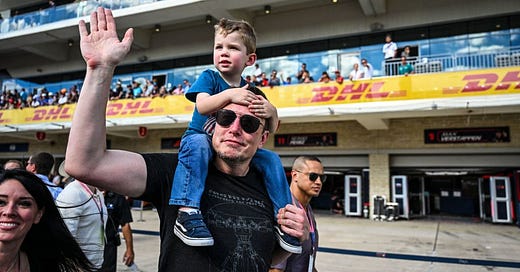


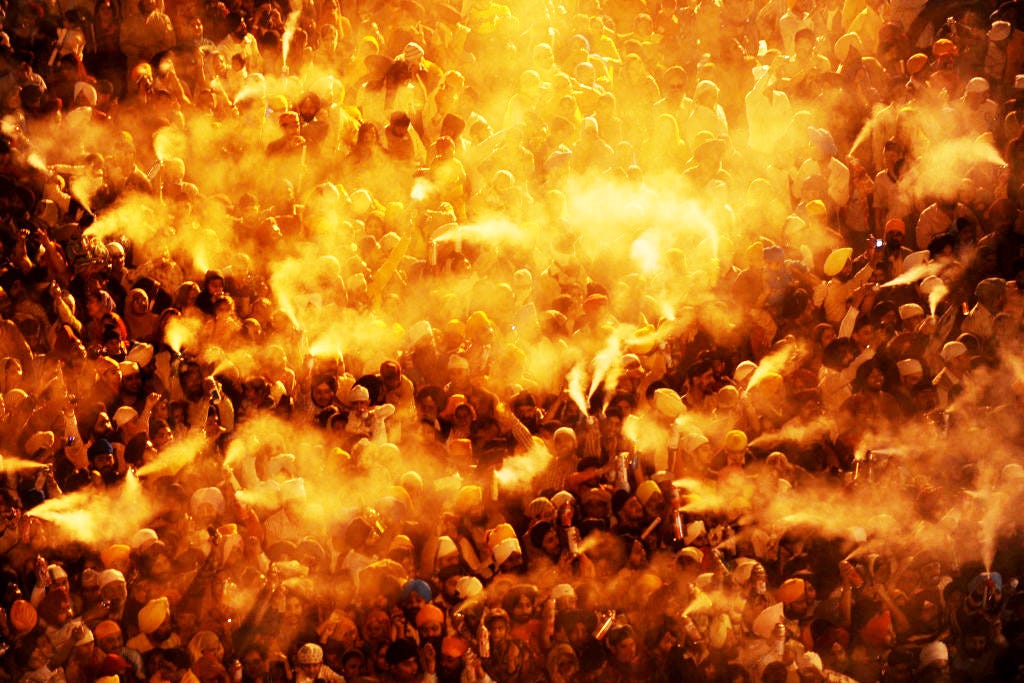



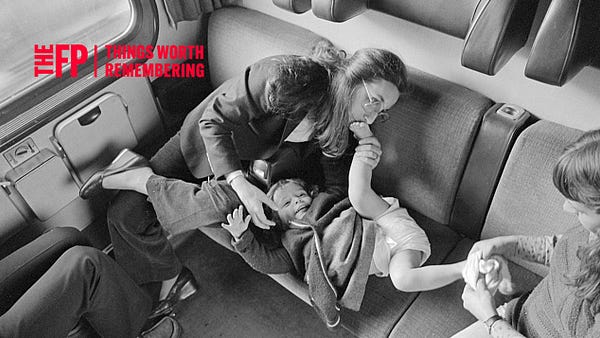

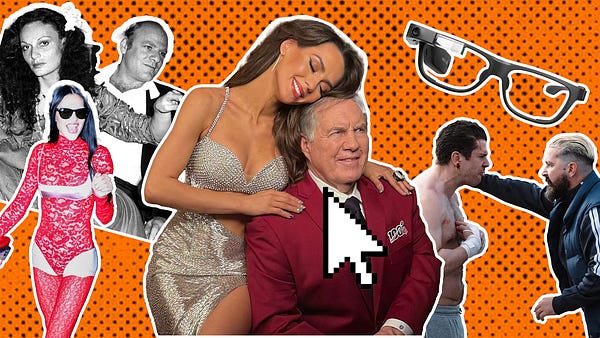

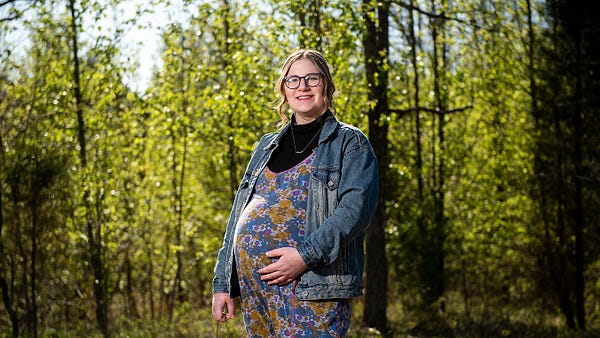


Late listener, a couple of things stood out:
-the previous twitter regime was only “compassionate” if you were a woke lib, otherwise it was hostile and exclusionary.
-I don’t think it’s some outlandish notion to say that this administration has it out for Elon. Biased and vindictive government behavior has happened often enough that it’s naive to dismiss it, and the current White House staffers (who are really running things) are absolutely the kind of people who had a mental breakdown when Elon forced them to share their favorite toy.
Elon Musk is actually a pretty standard liberal (old-school liberal) who supported Obama and Hillary. However, he is not ‘woke’ (unlike Jack Dorsey). Indeed (along with Bill Maher), he has denounced the ‘woke mind virus’. As a consequence, he is a hate figure on the left (the identity politics elite). Since the ‘woke’ control essentially everything (the media, Hollywood, academia, K-12 Education, NGOs, SV, Tech, Wall Street, the FBI/CIA/military, corporate America, etc.), that’s a really big deal.